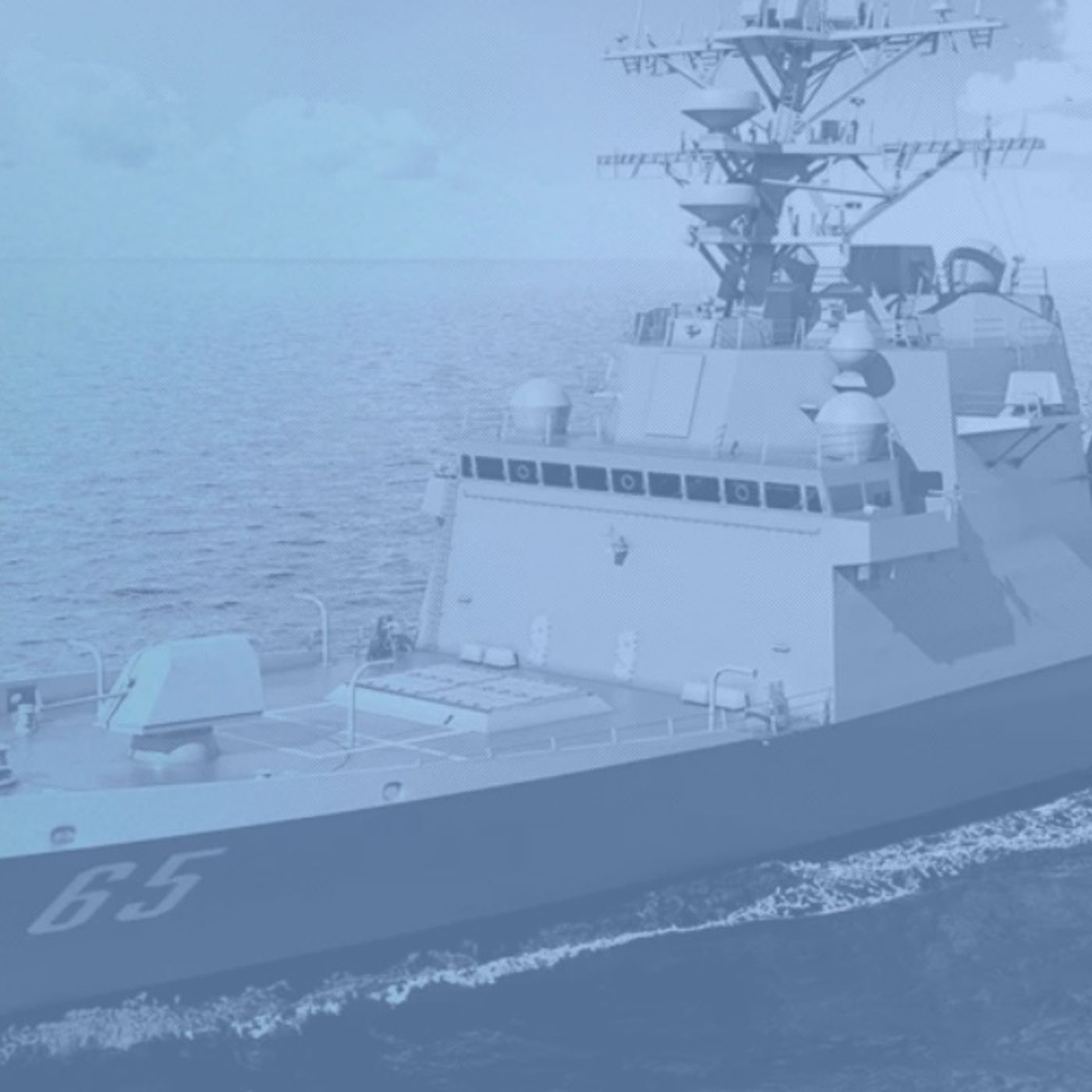Episode 696: A Constellation of Challenges, with Emma Salisbury
- Author
- Midrats
- Published
- Mon 12 Aug 2024
- Episode Link
- https://www.spreaker.com/episode/episode-696-a-constellation-of-challenges-with-emma-salisbury--60994004
Look who we have on a short-turnaround visit to Midrats, Dr. Emma Salisbury!We’re going to cover the waterfront issues in the Anglosphere, but we’ll kick off the discussion with the issues she outlined in her recent Behind the Front post, Franken-FREMM: How the Constellation Class Became a Monster.
Emma recently completed her PhD at Birkbeck College, University of London, with research focusing on the history of the U.S. military-industrial complex. She is the Sea Power Research Fellow at the Council on Geostrategy, Fellow at UK Strategic Command Defence Futures, and an assistant editor at War on the Rocks.
Showlinks
The conversation discusses the challenges and systemic problems in naval shipbuilding, specifically focusing on the Constellation Class FFG program. The guests highlight the lack of learning from previous failures, the accumulation of unnecessary changes, and the desire for perfection at the outset. They also explore the mindset issue in shipbuilding, the impact of economic considerations on decision-making, and the importance of maintaining shipbuilding capacity. The conversation emphasizes the need for an iterative approach and long-term planning to address these issues. The conversation explores the challenges and issues surrounding naval procurement and shipbuilding in the UK and the US. It discusses the underfunding of the armed forces, the problem of project creep, the need for investment in defense, and the importance of having a clear vision for ship designs. The conversation also touches on the potential of AI and unmanned assets in the future, the need for flexibility in ship designs, and the importance of maintaining a strong defense industrial base.
Takeaways
Emma recently completed her PhD at Birkbeck College, University of London, with research focusing on the history of the U.S. military-industrial complex. She is the Sea Power Research Fellow at the Council on Geostrategy, Fellow at UK Strategic Command Defence Futures, and an assistant editor at War on the Rocks.
Showlinks
- Franken-FREMM: How the Constellation Class Became a Monster - Emma Salisbury
- Beyond the Iron Triangle: The Military-Industrial Complex as Assemblage - Emma Salisbury
- The US Navy has Fallen Victim to the British Disease - Tom Sharpe
The conversation discusses the challenges and systemic problems in naval shipbuilding, specifically focusing on the Constellation Class FFG program. The guests highlight the lack of learning from previous failures, the accumulation of unnecessary changes, and the desire for perfection at the outset. They also explore the mindset issue in shipbuilding, the impact of economic considerations on decision-making, and the importance of maintaining shipbuilding capacity. The conversation emphasizes the need for an iterative approach and long-term planning to address these issues. The conversation explores the challenges and issues surrounding naval procurement and shipbuilding in the UK and the US. It discusses the underfunding of the armed forces, the problem of project creep, the need for investment in defense, and the importance of having a clear vision for ship designs. The conversation also touches on the potential of AI and unmanned assets in the future, the need for flexibility in ship designs, and the importance of maintaining a strong defense industrial base.
Takeaways
- Naval shipbuilding faces systemic problems and a lack of learning from previous failures.
- The desire for perfection at the outset and the accumulation of unnecessary changes contribute to shipbuilding challenges.
- Economic considerations and the impact on local communities often influence decision-making in shipbuilding programs.
- Maintaining shipbuilding capacity is crucial for national security and requires long-term planning.
- An iterative approach, similar to China's shipbuilding strategy, could be beneficial for naval shipbuilding programs. Both the UK and the US have historically underfunded their armed forces, leading to challenges in naval procurement and shipbuilding.
- Project creep, the tendency to continuously add features and modifications to a design, has been a major problem in naval procurement.
- Investment in defense is necessary to ensure the readiness and capability of armed forces.
- There is a need for a clear vision and focus on the...
